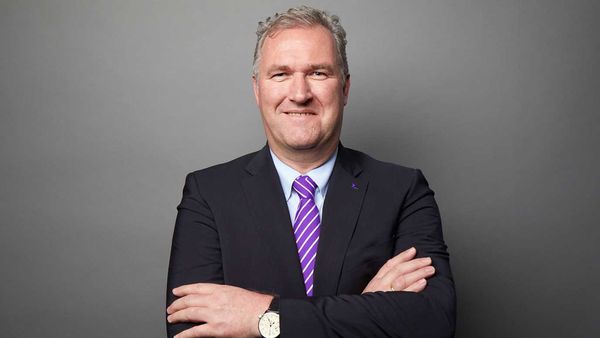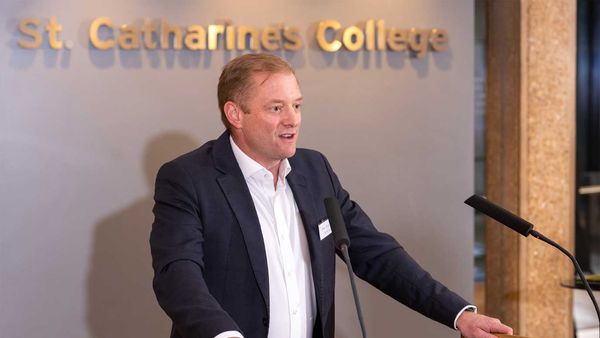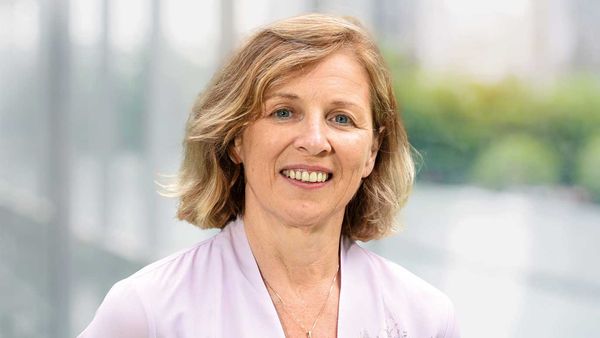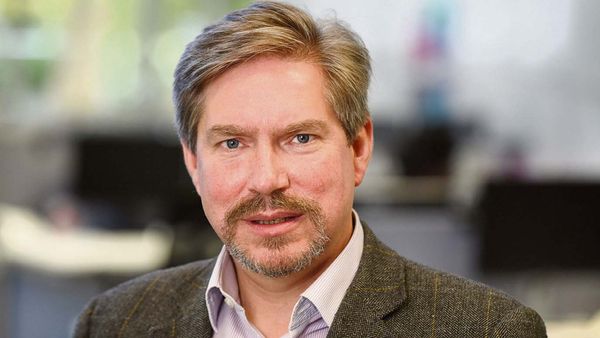Acquisitions: US billions secures ownership of Cambridge life science and technology companies

In total, acquisition value for Cambridge companies acquired in the last 12 months is over $14.48bn, with 87 per cent ($12.68bn) of that figure coming from the United States.
Visa came in for Featurespace late last month, KKR’s $442m acquisition of IQGeo has now completed, while Endomag, SATAVIA and Versed AI have been acquired by Hologic, GE Aerospace and Exigir respectively.
Cambridge life sciences tool specialist Abcam was acquired by Wall Street-listed US corporation Danaher for $5.7bn last year. Founded in 1998, and with a worldwide customer base of approximately 750,000 life science researchers, Abcam provides the research and clinical communities with highly validated antibodies, assays and other research tools to address important targets in critical biological pathways.
Abcam entered into a definitive agreement in August 2023 relating to its proposed acquisition by Danaher for $24.00 per share in cash, with the deal completing in December.
In March 2024, seasoned Danaher executive Markus Lusser was made Abcam President, replacing CEO Alan Hirzel at the helm. Abcam said the role was essentially the same and, as President, Lusser would lead Abcam through the next phase of its journey.

Darktrace’s new owner Thoma Bravo last month pledged that the brains of the business – the R & D team of some 300 people – would stay in the city despite CEO Poppy Gustafsson being replaced by Texas-based Jill Popelka. Gustafsson has now left the business altogether and become involved with the Government’s global investment push.
The $5.3bn all-cash acquisition was completed on October 1, 2024 with Darktrace delisting from the FTSE100 Index on the London Stock Exchange.
Darktrace listed on LSE in 2021 and, during its time on the public markets, increased its market capitalisation from £1.7bn to £4.1bn (as at 5 September 2024).
Founded in 2013, Darktrace provides the essential cybersecurity platform protecting organisations from unknown threats using its proprietary AI that learns from the unique patterns of life for each customer in real-time. New CEO, Jill Popelka, said: “Thoma Bravo will be a hugely valuable partner as we pursue further scale and innovation for our next stage of growth.
Darktrace’s position at the cutting edge of cybersecurity AI coupled with Thoma Bravo’s deep strategic and sector expertise will be a powerful combination.”
As announced late last month, Featurespace is to be acquired by San Francisco company Visa for an undisclosed sum. Reports from California suggest that Visa could pay close to $1 billion for the Cambridge-based online fraudbuster.
Business Weekly understands that Featurespace’s Cambridge presence will be retained. The acquisition is designed to complement and strengthen Visa’s portfolio of fraud detection and risk-scoring solutions used by clients around the world to grow and protect their businesses.
Since its inception out of Cambridge University’s engineering department, Featurespace has developed innovative algorithmic-based solutions to analyse transaction data and detect even the most elusive fraud cases.
Founded in 2008, Featurespace has over 400 team members, operating globally from six locations. It is backed by global investors including Chrysalis Investments, Highland Europe, IP Group plc, Insight Partners, MissionOG, and TTV Capital.
Also transferring to US-ownership over the past 12 months have been IQGeo, Endomag, SATAVIA and VersedAI.
Business Weekly’s reigning Business of the Year and Quoted Company of the Year, IQGeo saw its £333m acquisition by New York-based KKR completed last month. The company will continue to be anchored in Cambridge. KKR has vowed to combine its extensive technology and telecoms expertise to invest in the growth of IQGeo by supporting international expansion, broadening its product range and strengthening its customer relationships.
IQGeo’s geospatial software and services support leading operators within the telecoms and utilities sectors to design and operate fibre and electricity networks. The company was born in January 2019, after Ubisense Group plc disposed of its RTLS SmartSpace technology and brand, changed its name to IQGeo Group plc and repositioned to focus on its geospatial software solutions business.
In April of this year, it was announced that Endomag was being acquired by Hologic Inc – a NASDAQ-quoted firm based in Marlborough, Massachusetts – for $310 million. Endomag is a breast surgical guidance company based at Cambridge Science Park and generated around $35m of revenue in calendar 2023.
Endomag develops and sells breast surgery localisation and lymphatic tracing technologies. Its products include the Magseed® marker for magnetic tissue localization before surgery, the Magtrace® lymphatic tracing injectable for breast cancer staging and the Sentimag® platform, which supports both localisation and lymphatic tracing.
At the time, Endomag CEO, Eric Mayes said: “We are delighted to attract the strength and focus of Hologic to power the next phase of our growth. Our team is encouraged by our cultural alignment and the potential to strengthen a broader portfolio of solutions to improve women’s health globally.”
In September, SATAVIA was bought for an undisclosed sum by Boston, Massachusetts-headquartered GE Aerospace. SATAVIA is reducing the climate impact of flying by mitigating the warming effect of aircraft-created condensation trails (contrails). Its industry-leading platform DECISIONX:NETZERO optimises flight plans for contrail prevention, quantifies achieved climate benefit and converts mitigation into tradable carbon equivalent outcome units in a new global market.
SATAVIA was founded by Adam Durant in 2013 and operates a software subscription service and carbon credits business model which aims to attract 25 airline customers before the end of the decade. Abu Dhabi airline Etihad Airways was among the early engagers for SATAVIA.

In the Summer, US supply chain and third-party risk AI company Exigir, snapped up Cambridge startup Versed AI in an undisclosed deal. Versed AI, spun-out of the University of Cambridge’s Language Technology Lab. Its artificial intelligence technology is said to accelerate the process of extracting and aggregating multi-tier supplier networks, creating automated bills of material and generating proprietary value chain graph data.
Versed AI automatically maps and contextualises complex supply chains, providing customers with multi-tier supply chain intelligence. Exiger immediately integrated the VersedAI technology into its supply chain platform and UX 1Exiger.
Non-US acquisitions
Notable acquisitions of Cambridge life science and technology interests in the past 12 months to non-US companies include the sale of Jagex by Carlyle for $1.1bn to Jersey-based CVC Capital Partners, Johnson Matthey selling its Medical Device Components business (MDC) for $700m to Montagu Private Equity in the UK, Springboard bought for an undisclosed fee by Sanner in Germany, and Bristol and Cambridge-based Graphcore being acquired by Japanese company SoftBank for a reported $600m.
Cambridge video games company Jagex was sold in Q1 2024 by global investment firm Carlyle to CVC Capital Partners Fund VIII and Haveli Investments. No figures were released for the sale price but the acquisition is understood to be valued at around $1.1bn. Carlyle had owned Jagex since 2021 and played a major role in its continued growth.
Founded in 2000, Jagex is one of the most successful British video game studios, developing and publishing video games on PC and mobile and has around 700 employees. It is primarily known for its RuneScape titles, the leading Massive Multiplayer Online Role Playing Game.
In March, Johnson Matthey Plc, which has a major base at Cambridge Science Park, announced it was returning £250 million to shareholders after agreeing to sell its Medical Device Components business (MDC) to Montagu Private Equity (Montagu) for $700m (£550m) cash. The MDC business produces components for medical device manufacturers globally with a focus on precious metal alloys and nitinol. It serves a global customer base and operates manufacturing sites in San Diego, Mexico and Australia.
Montagu is a leading mid-market private equity firm that specialises in carve-out and other first time buyout investments and has deep expertise in five priority sectors: Healthcare, Financial Sector Services, Critical Data, Digital Infrastructure and Education. It partners with companies with enterprise values between €200 million and €1 billion and has €11bn assets under management.
Also in Q1 2024, German company Sanner GmbH swooped to acquire St John’s Innovation Park tenant Springboard Pro Ltd for an undisclosed sum in a deal facilitated by Prism Corporate Broking. Springboard was advised by Inger Anson at law firm HCR Hewitsons.
Springboard specialises in developing devices from initial concept through to manufacture, for regulated markets such as medical, drug delivery and biotech. Sanner is a healthcare packaging and medical device manufacturer backed by Europe’s leading healthcare specialist private equity investor, GHO Capital.
Chip business Graphcore, which is headquartered in Bristol but has offices in Cambridge, was acquired this year by Arm’s parent company SoftBank for a sum believed to be around $600m.
Acquisitions by Cambridge life science & technology companies
Cambridge headquartered AstraZeneca has made four major acquisitions so far in the past 12 months, buying companies in the US, Canada, China and France for a total of $5.75bn. In December 2023, AstraZeneca entered into a definitive agreement to acquire NASDAQ-quoted Chinese company Gracell Biotechnologies for up to $1.2bn.
Gracell is a global clinical-stage biopharma business developing innovative cell therapies for the treatment of cancer and autoimmune diseases.
Susan Galbraith, Executive Vice-President, Oncology R & D at AstraZeneca, said of the deal: “The proposed acquisition of Gracell will complement AstraZeneca’s existing capabilities and previous investments in cell therapy, where we have established our presence in CAR-T and T-cell receptor therapies (TCR-Ts) in solid tumours.
“GC012F will accelerate our cell therapy strategy in haematology, with the opportunity to bring a potential best-in-class treatment to patients living with blood cancers using a differentiated manufacturing process, as well as exploring the potential for cell therapy to reset the immune response in autoimmune diseases.”

Also in December, AstraZeneca entered into a definitive agreement to acquire NASDAQ-quoted Icosavax, Inc., a clinical-stage biopharma company based in Seattle and focused on developing differentiated, high-potential vaccines using an innovative protein virus-like particle (VLP) platform. The $1.1bn acquisition was completed in February of this year.
A $2.4bn acquisition of Canadian and US company, Fusion Pharmaceuticals, was completed in June 2024. AstraZeneca bought Fusion to accelerate the development of nextgen radioconjugates (RCs) to treat cancer. The acquisition marked a major step forward in AstraZeneca delivering on its ambition to transform cancer treatment and outcomes for patients by replacing traditional regimens like chemotherapy and radiotherapy with more targeted treatments.
RCs have emerged as a promising modality in cancer treatment over recent years. These medicines deliver a radioactive isotope directly to cancer cells through precise targeting using molecules such as antibodies, peptides or small molecules.
In July, AstraZeneca completed the $1.05bn acquisition of Amolyt Pharma in France, a clinical-stage biotechnology company focused on developing novel treatments for rare endocrine diseases. The deal expands AstraZeneca subsidiary Alexion’s late-stage rare disease pipeline in key areas beyond complement inhibition, building on the company’s success in bone metabolism and opportunity in rare endocrinology.
Nasdaq-quoted transatlantic company Eliem Therapeutics, which has bases in Seattle and Cambridge UK, agreed to buy New Jersey biotech Tenet Medicines in April. No figures were disclosed, but the combined enterprise is expected to have around $210 million cash and equivalents, including $120m from a concurrent private placement of common stock from leading life sciences investors.
Eliem expects the overall $210m in the coffers will be sufficient to fund the combined company’s planned operations into 2027 and enable the potential attainment of key clinical and development milestones for its lead product, TNT119 – a potentially best-in class anti-CD19 antibody, designed for a broad range of autoimmune diseases, including systemic lupus erythematosus, immune thrombocytopenia and membranous nephropathy.
Also in April, Cambridge entrepreneurs David Newble and Mark Gilligan joined forces to buy Fluidic Analytics’ instrumentation business out of administration.
Newble, who was with SPT Labtech for 10 years, formed a new company with Gilligan to identify opportunities for growth at young techbio ventures that need guidance and finance to grow. He said: “Fluidic’s administration was an unfortunate turn of events but the core technology is excellent and we believe we can add to its capabilities. There are 30 or 40 customers out there internationally who seem to find the instrumentation useful so we can build on a sound base.”

In June, end-to-end Database DevOps solution provider Redgate Software acquired Austrian owned database tech enterprise DB-Engines for an undisclosed sum.
More recently, law firm Mills & Reeve advised Cambridge-based Salesforce DevOps solutions provider, Gearset, on its first acquisition as part of an ambitious growth strategy. Gearset bought London-based Clayton, a cutting-edge code analysis platform designed specifically for Salesforce. The integration of Clayton’s technology into Gearset’s DevOps suite will enable Salesforce teams to quickly and easily build secure and well architected applications.


